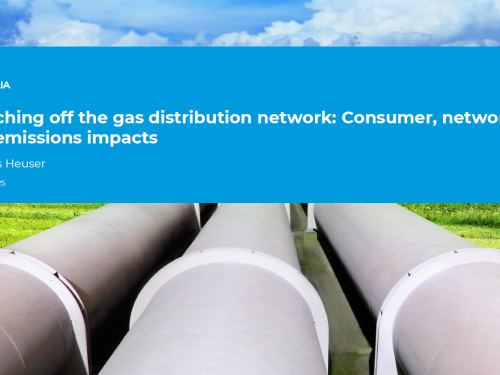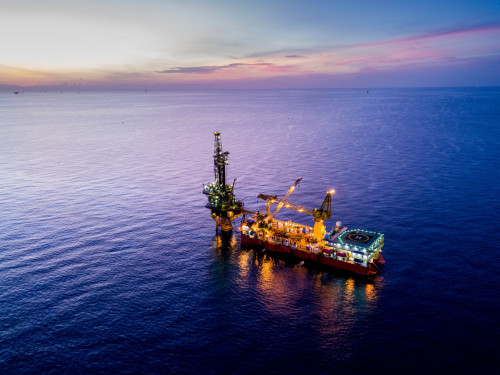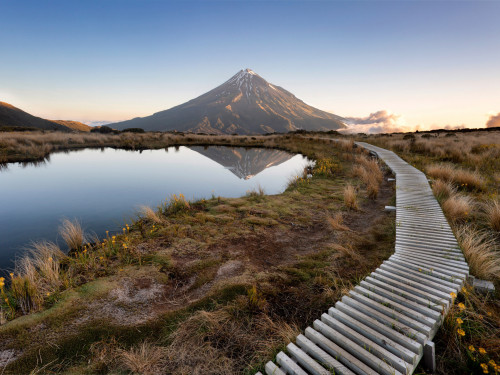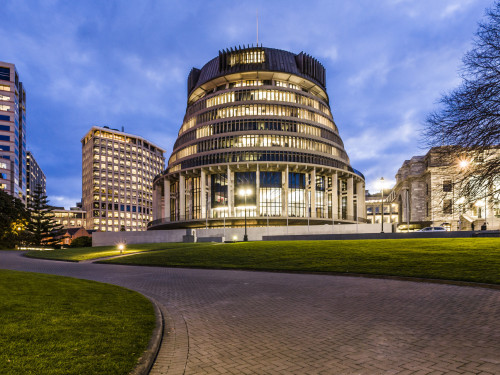We regularly produce or commission research and analysis on aspects of the gas industry.

Switching off the gas distribution network - 2025
In consultation with ECCA, we selected Castalia to analyse the economic and emissions impacts of ending gas supply through distribution networks to consumers. The study found that estimates of future energy costs (for electricity or gas) dominate the outcome. As those estimates have some uncertainty, the study presents findings about how much gas prices would have to rise, and electricity prices would have to fall relative to today, for the switch-off to be economic for consumers in aggregate.
The report, briefing presentation and briefing video can be found below under 'Castalia - Switching off the gas distribution network'.

Gas Supply and Demand Study - 2024
The 2024 Gas Supply and Demand study was undertaken by EY It analysed four potential scenarios to represent a range of possible futures, a‘low intervention’ future, a ‘Methanex leaves early’ scenario, LNG imports, and a high use of renewables.
The study showed investment in new gas supply is needed, and that in the absence of imported fuel or a significant domestic gas discovery, supply will become insufficient to meet demand if the current trajectory continues.

Gas Market Settings Investigation (2021)
We investigated issues concerning New Zealand's transition to a future of 100 per cent renewable electricity by 2030, after the Minister of Energy & Resources asked for advice about settings in the natural gas market and whether they are fit for purpose.
Read more
Gas demand and supply projections – 2021 to 2035
We commissioned Concept Consulting to produce the study “Gas demand and supply projections – 2021 to 2035” to to support our Gas Market Settings Investigation.
Castalia - Switching off the gas distribution network
Click the link to access the Castalia report, briefing and video.
In the 2024 consultation on the Gas Industry Co workplan, we signalled a gap in knowledge about the consequences of disconnecting distribution networks. While several components of a switch-off have been analysed in New Zealand, such as the cost of appliances, the full cost is needed for modelling about future energy pathways. Our particular interest has been to learn the aggregate effect on consumers taking into account all of the costs associated with transitioning.
In 2025, in consultation with ECCA, we selected Castalia, to analyse the economic and emissions impacts of ending gas supply through distribution networks to consumers. Three networks were examined to represent a range of North Island gas networks. For example: Gisborne is smaller, has few industrial connections and is at the end of a transmission line with higher electricity prices; Wellington is large, and has a constrained electricity network that would need to be upgraded to accommodate extra demand.
The study found that estimates of future energy costs (prices for electricity or gas) dominate the outcome. As those estimates have some uncertainty, the study presents findings about how much gas prices would have to rise, and electricity prices would have to fall relative to today, for the switch-off to be economic for consumers in aggregate.
The findings are relevant to analysis of the future of energy networks. Individual consumers will have varying individual economic cases.
Related documents
Research and Anaylsis
Studies and reports completed by and for Gas Industry Co can be found below. More recent research can be found in the relevant workstream under Our work.
We publish gas supply and demand studies to better understand the role of gas in the future and to provide stakeholders with useful information to make informed decisions.
Why these studies are important
Regular Supply and Demand studies provide insights for industry and policymakers about the potential outcomes from decisions about possible pathways for the sector.
Why we use scenarios
Scenarios analysis seeks to model likely outcomes in a given set of circumstances, allowing us to explore the potential impacts of different demand-side and supply-side drivers. This helps us to make decisions between potential choices.
Scenario analysis differs from forecasting because it is not a prediction of what is likely to happen in the future.
Read more about our Supply and Demand studies.